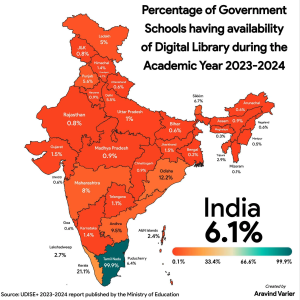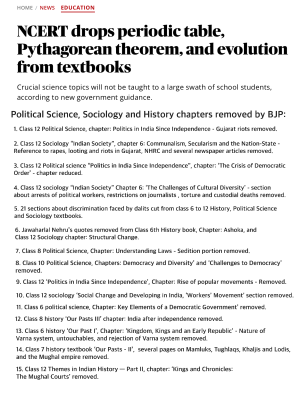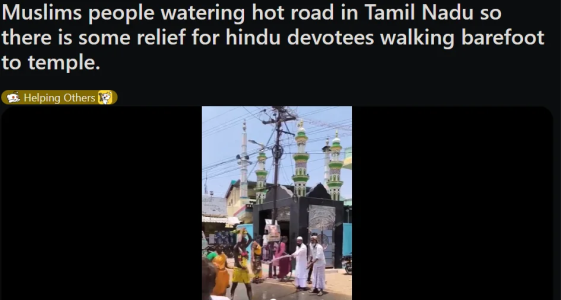Hindi v Tamil: India's language battle heats up
Getty
Tamil Nadu Chief Minister MK Stalin has said he will not implement the education policy in his state
A war of words has erupted between the chief minister of a southern Indian state and the federal government over an education policy that, among other things, also deals with what languages children are taught in schools.
The National Education Policy (NEP) 2020 was introduced by Prime Minister Narendra Modi's government five years back and is being implemented in stages. It has made headlines recently after Tamil Nadu Chief Minister MK Stalin alleged that the federal government was penalising his state for refusing to implement it - charges Delhi has denied.
A section of the policy recommends that students learn three languages. It doesn't mention any language specifically, but adds that at least two should be "native to India".
Stalin has cited
a number of reasons for not implementing the NEP. But it is his allegation that the three-language policy will lead to the imposition of Hindi - the northern Indian language that is the most widely spoken in India - in his state that has dominated headlines recently.
India, where states are mostly organised on linguistic lines, has nearly two dozen official languages, including Hindi, Tamil and English. But southern states have often protested against efforts by successive federal governments to privilege Hindi over other languages.
It is an especially sensitive issue in Tamil Nadu, which has historically been at the forefront of such protests.
The issue led to heated exchanges in India's parliament on Monday, with federal Education Minister Dharmendra Pradhan
accusing Stalin and his party members of "mischief".
"Their only job is to raise language barriers. They are undemocratic and uncivilised," Pradhan said, sparking protests by Stalin's party, the Dravida Munnetra Kazhagam, in Tamil Nadu.
What is the controversy about?
Education is a part of the constitution's "concurrent" list, which means that both the federal and state governments can make and enact laws around it. Schools and colleges follow different syllabi and rules depending on who oversees them - the federal or state governments.
The National Education Policy aims to promote and regulate education in India and the government updates it occasionally, with the NEP 2020 being the fourth iteration.
The three-language formula has found place in the NEP from its first version in 1968 and has often faced pushback from states, including Tamil Nadu. Many of its recommendations were not legally binding on state-run schools - Tamil Nadu, for instance, teaches only two languages, English and Tamil, in schools it runs. The state's leaders have argued that learning their mother tongue, Tamil, helps children learn subjects better while English opens up more promising opportunities.
Tamil Nadu government schools have also performed well over the years on surveys measuring parameters including access to education and quality of infrastructure.
The latest NEP says that the "three-language policy will continue to be implemented" but adds that - unlike earlier versions - there will be "greater flexibility" and that "no language will be imposed on any state".
Getty Images
Tamil Nadu says teaching only two languages, Tamil and English, has served it well
But Stalin and his party - who say they are not against Hindi itself - have argued over the past few weeks that the policy's eventual aim is to force the language on non-Hindi-speaking states.
The chief minister wrote on
X last month that Hindi - which emerged as a standardised language for easy communication during the British era - ended up dominating other languages and dialects spoken in northern India, such as Bhojpuri and Awadhi.
His party's MP Kanimozhi Karunanidhi also recently questioned why a student should be forced to learn three languages.
"Students have enough burden in schools. You have to learn so many subjects, and on top of that you are forced to learn three languages instead of two," she told the
Indian Express newspaper.
But Pradhan has denied allegations that the policy will force Hindi through.
"We have never said in NEP 2020 that only Hindi will be there; we have only said that education will be based on mother tongue - in Tamil Nadu, it will be Tamil," he
told reporters last week.
So why is this so important?
The latest controversy has been exacerbated by Tamil Nadu's claims that it has not been allotted its share of funds for Samagra Shiksha Abhiyan - a school education programme partially funded by the federal government - due to the state's refusal to implement the NEP.
The Hindu newspaper reported
last August that the federal government had asked Tamil Nadu to sign a memorandum of understanding (MoU) to participate in the scheme. However, according to the MoU, participating in the scheme meant that the state had to adopt NEP 2020 "in its entirety".
In December, a junior federal minister told parliament that Tamil Nadu did not sign the MoU for the scheme despite agreeing initially - a claim the DMK denied, saying it never agreed to do so.
In February, Stalin wrote a
letter to Prime Minister Narendra Modi, asking him to urgently release the funds, amounting to around 21.5bn rupees ($247m; £191m).
Why is language such a sensitive topic in India?
India is one of the world's most linguistically diverse countries and some estimates say
thousands of languages are spoken here.
But there are only 22 official languages, with Hindi - spoken by more than 46% of the population - being the most widely used, according to the last census held in 2011.
After the British left India in 1947, the newly independent nation sought to promote Hindi as a link language to replace English. The constitution - enacted in 1950 - also nudges the federal government to promote the spread of Hindi.
Getty Images
Language is an especially sensitive issue in Tamil Nadu, which has seen fierce protests against Hindi
This invited fierce opposition from non-Hindi-speaking states, prompting the federal government to continue using English as an alternate official language for 15 years after 1950.
As the deadline year of 1965 approached, violent protests over fears of Hindi "imposition" erupted again across Tamil Nadu, leading the federal government to pass a law that assured the continued use of English as an official language.
However, successive federal governments have introduced policies or made announcements that have kept these anxieties simmering.
The 1968 NEP adopted the three-language formula for the first time and, in the same year, the government introduced policies
mandating the teaching of Hindi in non-Hindi speaking states, leading to fresh protests.
Over the years, the issue of Hindi versus other languages has made headlines repeatedly. In 2023, Stalin criticised the Modi government for replacing some colonial-era laws with ones bearing Hindi names (the Indian Penal Code, for instance, has been replaced with a law named Bharatiya Nyaya Sanhita).
A federal government commission that examined the language policy during 1948-49 acknowledged that the issue's sentimental nature made it "difficult to consider it in a calm and detached manner".
"No other problem has caused greater controversy among educationists and evoked more contradictory views from our witnesses," it said.
Source --
https://www.bbc.com/news/articles/c3w19242l63o






















